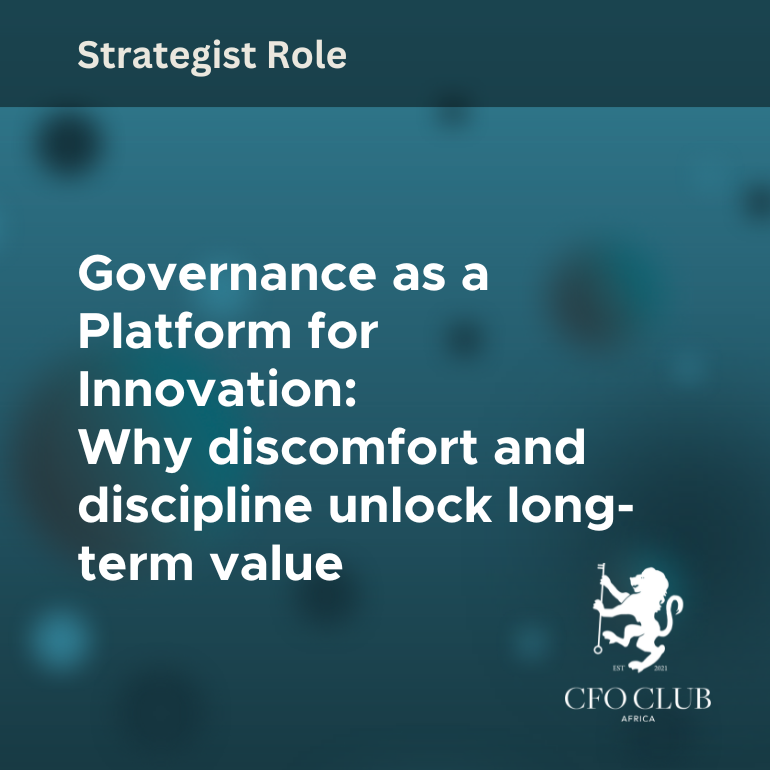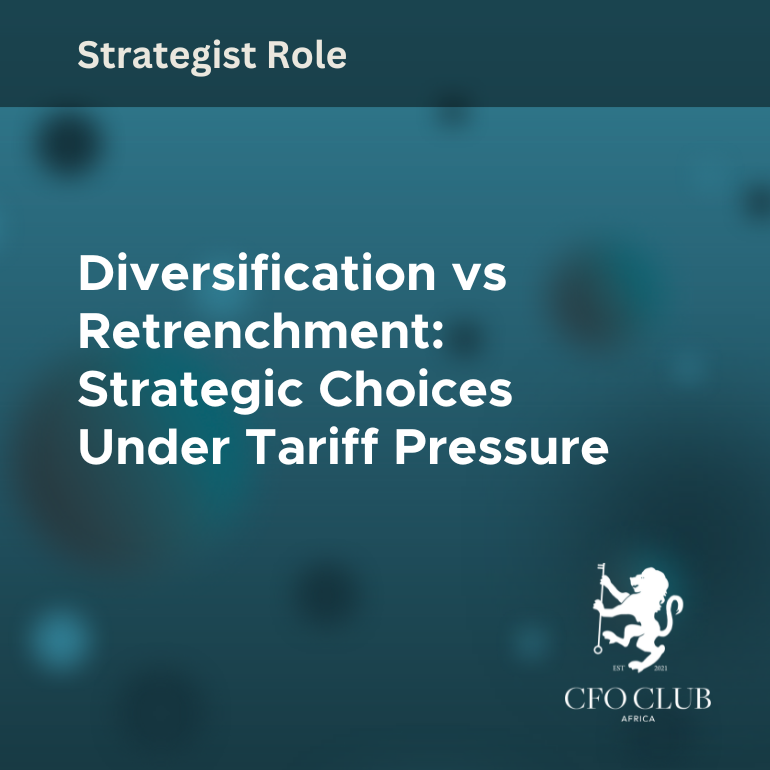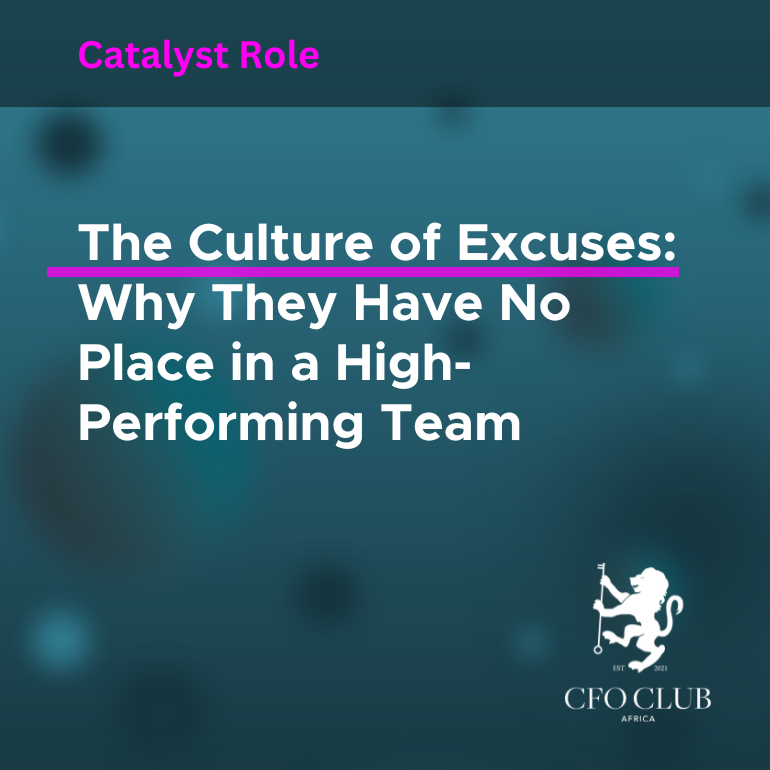Governance as a Platform for Innovation: Why discomfort and discipline unlock long-term value
CFOs know that governance is rarely glamorous. It is the board packs, the compliance filings, the endless detail that few outside the finance function ever see. But it is also the scaffolding on which growth rests. Without it, even the most exciting strategy collapses under its own weight. With it, bold moves become possible.
South Africa provides constant reminders of what happens when governance fails. Eskom’s lack of oversight has translated directly into billions lost through load-shedding and emergency procurement. Municipalities that ignore basic controls have seen infrastructure decay, services collapse, and investors withdraw. Weak governance is not a technicality; it is the silent force that destroys capital, erodes confidence, and puts entire organisations at risk.
Yet the reverse is equally true. Strong governance creates resilience and unlocks opportunity. Capitec is one of the most visible examples. By combining transparent financial reporting, consistent risk management, and disciplined oversight, it grew from a micro-lender into one of South Africa’s most trusted banks. Investors rewarded that credibility with capital. Customers rewarded it with loyalty. The discipline of governance was not a brake; it was the accelerator.
Growth Requires Discomfort
CFOs are well acquainted with pressure. Every new piece of legislation, every shift in regulation, every tightening of audit expectations lands squarely in the finance function. Tax reforms demand new models. POPIA forces new controls over data. ESG requirements push disclosure to levels that were unheard of a decade ago. These can feel like barriers, but in reality they are signals. Each change is a trigger to adapt, refine, and build systems that will withstand the next disruption.
Growth, by definition, is uncomfortable. The first move into renewable energy is costly and uncertain, yet it protects the organisation from Eskom’s instability. Implementing digital finance platforms disrupts established processes, but ultimately cuts costs and sharpens decision-making. Expanding into African markets with diverse regulatory landscapes stretches teams to the limit, but it builds resilience and new revenue streams.
Discomfort is not the price of growth. It is the proof that growth is taking place.
What This Means in the Boardroom
For CFOs, the governance conversation cannot be positioned as “compliance for its own sake.” It must be framed as strategic. Boards and shareholders want confidence that capital is protected and that risk is not only managed, but turned into opportunity. When you present governance as the enabler of expansion, investment, and resilience, you change the conversation.
Governance should not appear as a cost centre in the budget. It should be articulated as an asset that builds credibility with regulators, investors, and markets. The CFO who can explain this connection clearly becomes more than a steward of the numbers. They become a driver of long-term value.
The Bottom Line for CFOs
- Weak governance destroys capital. Eskom, Steinhoff, and many municipalities prove the cost.
- Strong governance builds confidence. Capitec and clean-audit municipalities show how credibility attracts funding and partnership.
- Regulation and disruption are not barriers. They are signals to adapt and expand.
- Growth is rarely comfortable. But without discomfort, there is no forward movement.
For CFOs, the task is not to downplay governance as administration. It is to position it as the foundation for innovation and resilience. In volatile economies, this is the competitive edge. You are not only protecting balance sheets. You are enabling growth strategies that will still stand a decade from now. That is the difference between finance as a support function and finance as the centre of strategic leadership.





